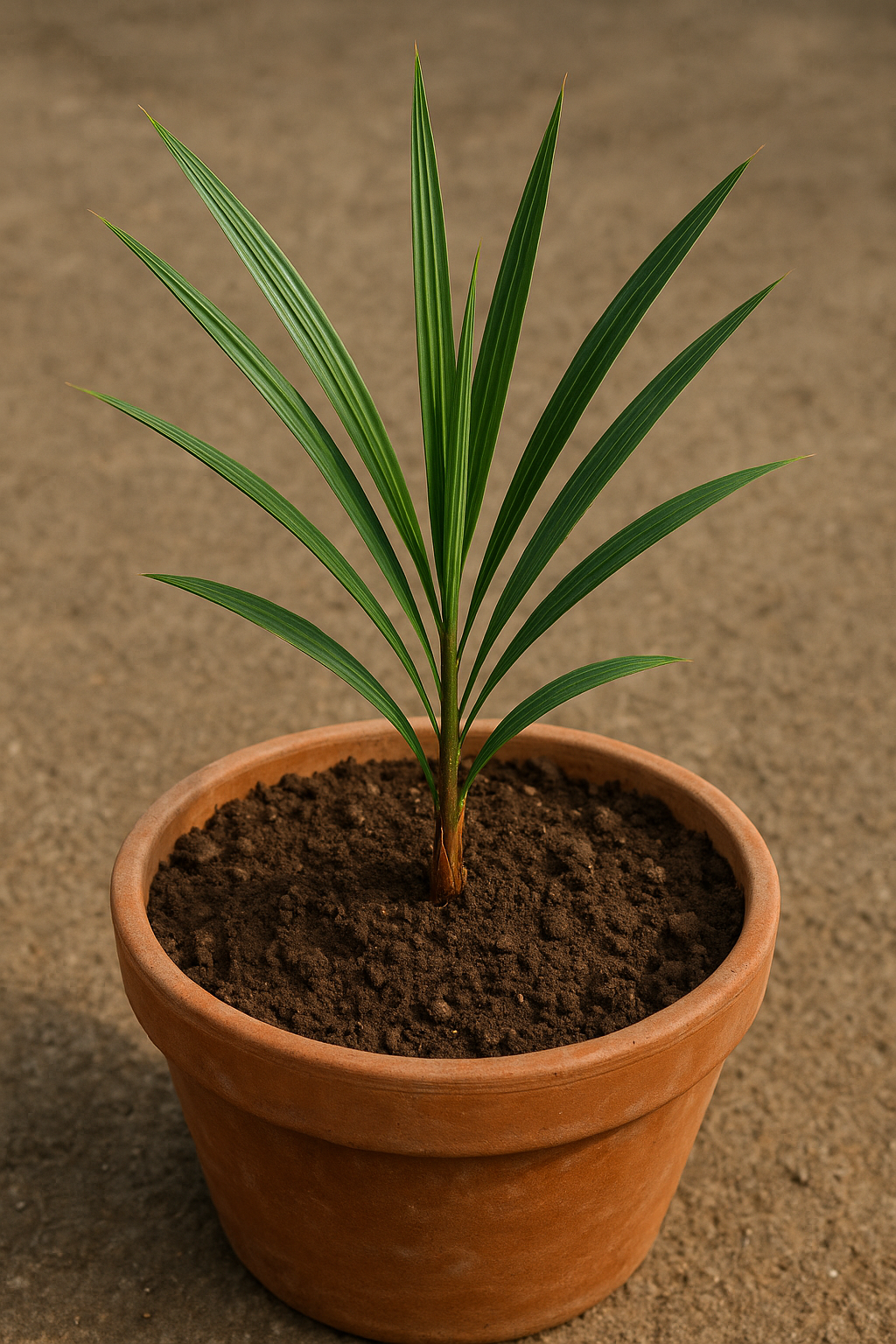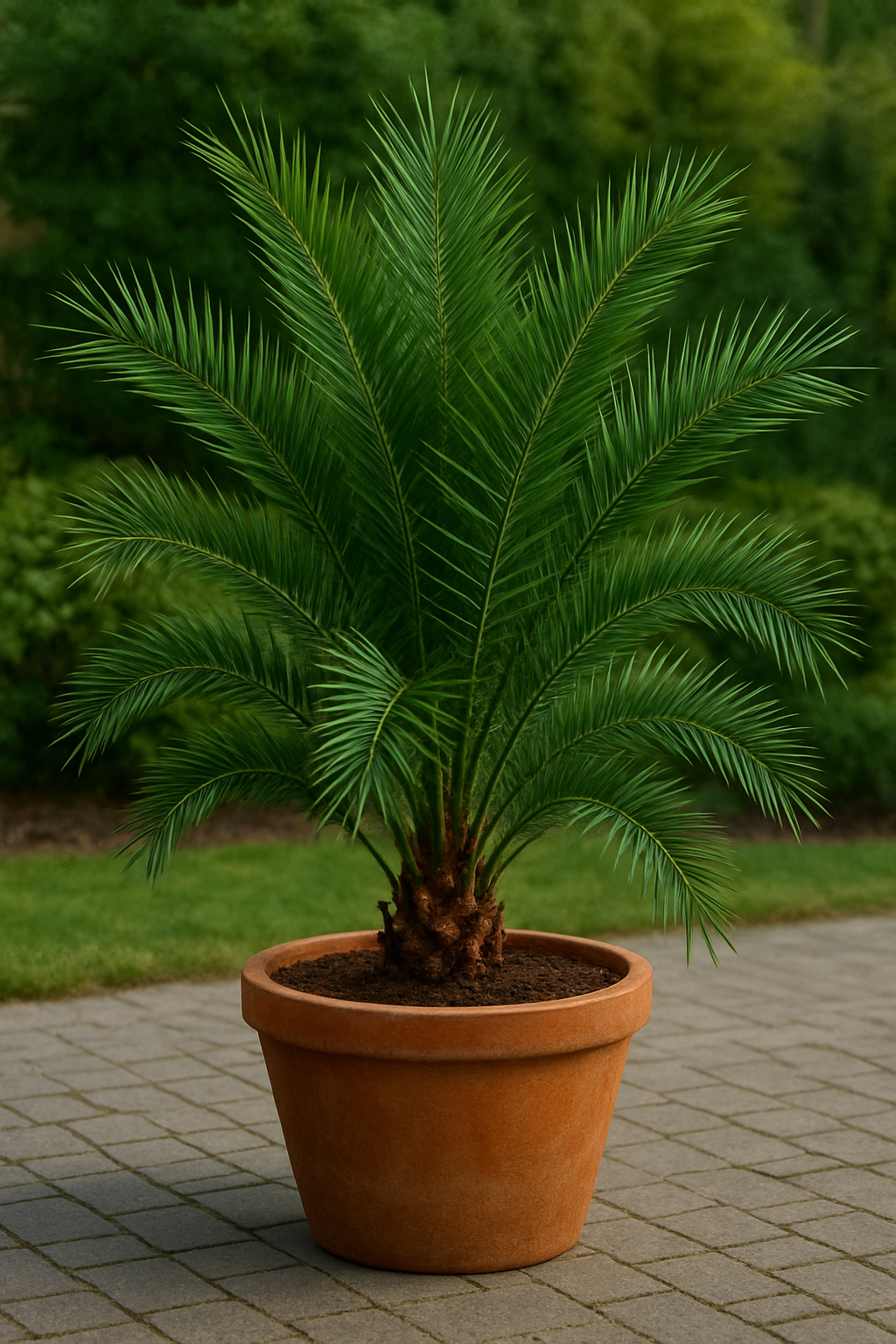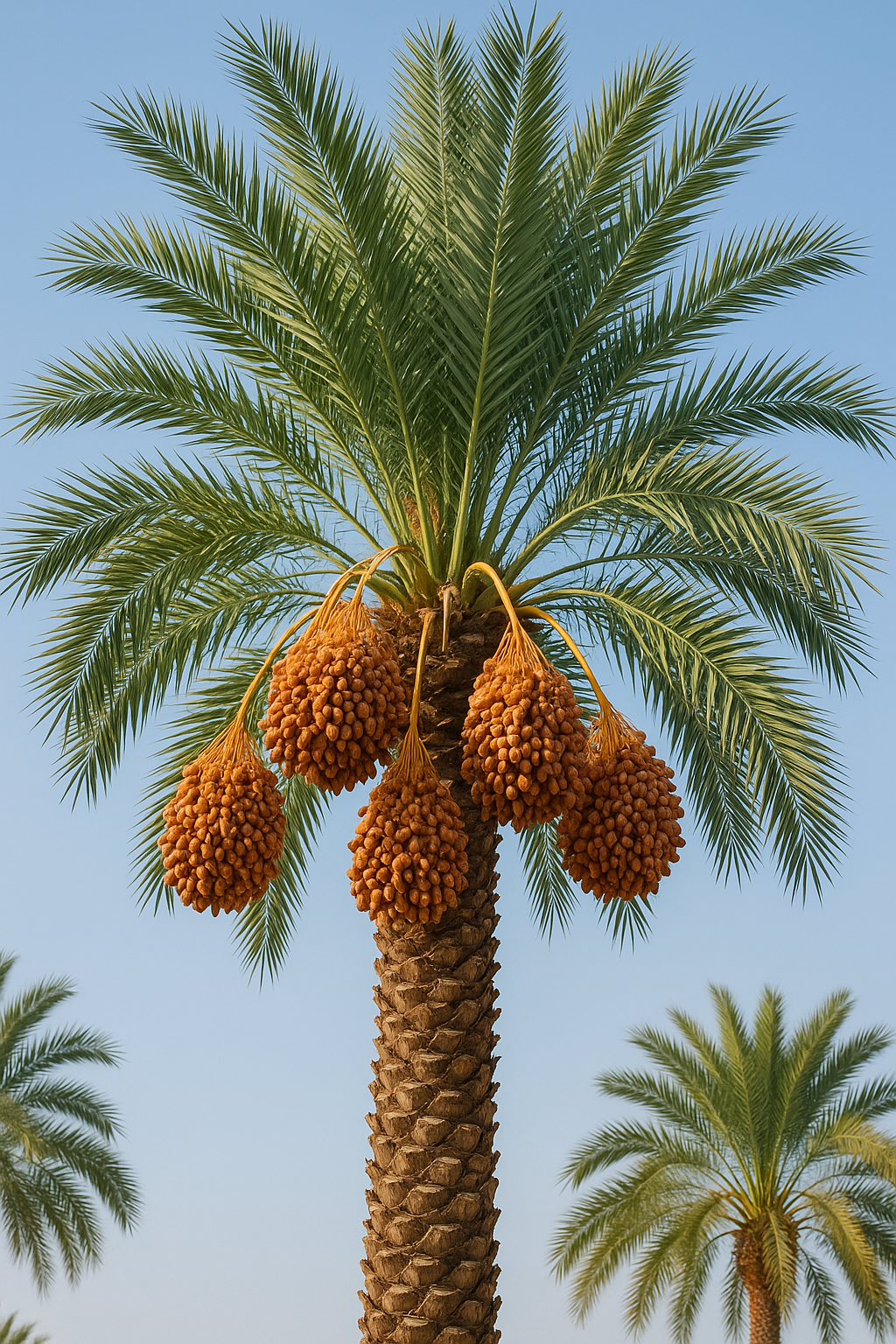Date Palm (Phoenix dactylifera)
Phoenix dactylifera • Arecaceae Family
Date Palm is a majestic fruit-bearing palm tree that produces sweet, nutritious dates! This ancient tree from the Middle East can reach 50-80 feet tall and live for over 100 years, creating a stunning landscape feature while providing delicious harvests.
Best Propagation Method
Seed Germination - Ancient and reliable method!
Collect fresh date seeds (pits) from ripe, high-quality dates and remove all remaining fruit flesh completely
Wash the seeds thoroughly to remove sugars that can invite mold, scrubbing off any stubborn pulp
Soak the clean seeds in a bowl of water for 24-48 hours, replacing water daily to prevent stagnation
Discard any seeds that float to the surface during soaking - they are likely not viable
Fill small pots with well-draining seed-starting mix (half peat moss, half perlite or sand works well)
Plant each seed about 1-2 cm deep, pressing it into soil so it's half-covered or fully covered with ½ inch of mix
Cover pot with plastic bag or wrap to lock in humidity and place in warm, bright location (70-85°F / 21-29°C)
Keep growing medium consistently moist but not waterlogged - mist lightly if it starts to dry
Germination occurs in 3-8 weeks - you'll see a white root emerge first, followed by a green shoot
Remove plastic covering once seedling sprouts and gradually acclimate to more sunlight over time
Light Requirements
Full sun is essential - provide at least 6-8 hours of direct sunlight daily for healthy growth and fruiting.
Watering
Moderate watering. Keep young palms consistently moist but never swampy. Mature palms are drought-tolerant but fruit best with consistent moisture.
Soil Requirements
Well-draining sandy or loamy soil. Tolerates various pH levels and even moderately saline soils. Use cactus/palm mix for containers.
Temperature
Thrives in heat (80-95°F / 27-35°C). Semi-hardy to cold - can survive brief dips to 20°F (-6°C) but needs protection from prolonged freezing.
Only female palms produce fruit - you need both male and female trees for pollination (1 male can pollinate multiple females)
Seed-grown palms take 7-8 years to fruit, while offshoot-grown palms can fruit in 5-7 years
Each seed creates a genetically unique palm - only 50% will be female, and fruit quality varies from parent
For guaranteed quality dates, choose offshoot propagation from known varieties like Medjool or Deglet Noor
Prefers dry, arid climates - high humidity can lead to fungal diseases and fruit rot
Wear thick gloves when handling - frond bases have sharp spines that can cut or prick skin
Can be grown in large containers when young, but will eventually need outdoor space (grows 50-80 feet tall!)
A mature palm can produce hundreds of pounds of sweet dates in a good season
Watch for Red Palm Weevil - a serious pest that bores into trunks and can kill the palm
Avoid overwatering - these desert natives hate 'wet feet' and are prone to root rot in soggy soil



